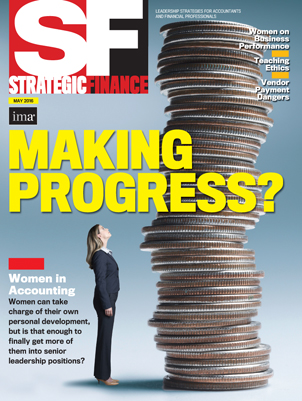Research studies have consistently shown that companies with a strong ethical and trusting culture are more profitable than those without it. Prospective employees want to work for a company with a reputation for treating its stakeholders fairly, which leads to greater productivity and lower turnover and training costs. Many customers also prefer to patronize more ethical companies, which results in higher sales and wider margins.
The importance of trust in financial services is exemplified by the number of trust indices in that industry. For example, in 2014 Thomson Reuters used proprietary data and analysis of business news to “track the state of trust” in the top 50 global financial institutions. And Nottingham University Business School produces a Trust and Fairness Index of the financial services industry in the United Kingdom through its Centre for Risk, Banking and Financial Services. Its 2016 report shows that “consumer perceptions of the trustworthiness and fairness of [financial] advisers and brokers have deteriorated ‘significantly’ in recent months.”
GLOBAL MEASURE OF TRUST
The Edelman Trust Barometer (ETB), which surveyed 33,000 respondents in 28 countries for its 2016 ETB, is the most comprehensive global measure of the level of trust that an institution will “do what is right.” The ETB reports “a yawning trust gap” between those who are “elite,” or higher-income, more informed, and more educated (15% of the sample), and those in the general population. The four areas studied, from most to least trusted, are nongovernmental organizations, business, media, and government.
This year the overall trust level for these institutions increased two percentage points among the general population, but it still represents less than half (48%) of that population sample. In contrast, the level to which the elites trust institutions grew by four points to 60%, so the overall trust gap widened to 12 percentage points (19 points in the United States).
The ETB reports that the trust differential correlates with income inequality. For example, the U.S. trust level in the highest (71%) and lowest (40%) quartiles of income results in the world’s widest trust gap of 31 points. ETB believes that business leaders are too focused on short-term financial results and lobbying efforts rather than on what the general population wants, which is more emphasis on local job creation and other longer-term outcomes.
Business is in the best position to diminish the trust gap—respondents in 21 of 28 countries trust business more than government to solve problems. Eight in 10 think that business can improve socioeconomic conditions in its community while still earning sustainable profits. Among the issues respondents suggest that business should address are access to education and training, access to healthcare, protecting the environment, improving human and civil rights, addressing income inequality, maintaining a modern infrastructure, and reducing poverty.
INCREASING TRUST
Barbara Brooks Kimmel, founder of Trust Across America-Trust Around the World (TAA-TAW), calls trust “a natural byproduct of strong core values” and also “the outcome of promises kept.” TAA-TAW, an organization whose mission is to help enhance trustworthy behavior in organizations, is developing a new framework for analyzing the core drivers of trust and identifying and selecting “high trust” publicly held companies. The framework’s acronym is FACTS: Financial stability and strength, Accounting conservativeness, Corporate integrity, Transparency, and Sustainability. TAA-TAW named Texas Instruments, Inc. (TI) as the most trustworthy public company for the period 2010-2014.
Many other organizations are involved in measuring, publicizing, and helping to increase trust in business, government, and society. Perhaps the best-known global organization surveying workplace trust is the Great Place to Work® Institute (GPTW), which produces research for lists of “best workplaces” in publications in 40 countries around the world. The research is based primarily on GPTW’s annual Trust Index Employee Survey, which is taken by millions of employees worldwide.
Fortune magazine uses GPTW data to publish the U.S. list of 100 best companies to work for, as well as top companies in a number of subdivisions. Heading 2016 is Alphabet, Inc., the parent company of Google. Google has been leading the list for seven of the last 10 years. Large company leaders selected by GPTW in other countries are less well known. The Gustavson Brand Trust Index surveys the role trust plays in the minds of Canadian consumers and in 2016 found restaurant chain Tim Horton’s to be the “most trusted” brand.
GPTW’s website notes that “the foundation of every great workplace is trust between employees and management.” Robert Levering, GPTW’s cofounder, says, “A great place to work is one in which you trust the people you work for, have pride in what you do, and enjoy the people you work with.” He adds that “in such environments, people cooperate, innovate and work smarter, which leads to outstanding customer service, higher profits, and greater productivity.”
These lists and organizations are important external measures of the work that is or should be done in organizations of all types. For those of us in accounting and finance, trust is an integral part of our profession and our own work. Following the overarching principles of honesty, fairness, objectivity, and responsibility in the IMA Statement of Ethical Professional Practice, we can become strong contributors to a culture of trust in our organizations and create positive change from within.
IMA ETHICS HELPLINE
For clarification of how the IMA Statement of Ethical Professional Practice applies to your ethical dilemma, contact the IMA Ethics Helpline.
In the U.S. or Canada, dial (800) 245-1383. In other countries, dial the AT&T USA Direct Access Number from www.usa.att.com/traveler/index.jsp, then the above number.
The IMA Helpline is designed to provide clarification of provisions in the Statement of Ethical Professional Practice, which contains suggestions on how to resolve ethical conflicts. The helpline cannot be considered a hotline to report specific suspected ethical violations.

May 2016



